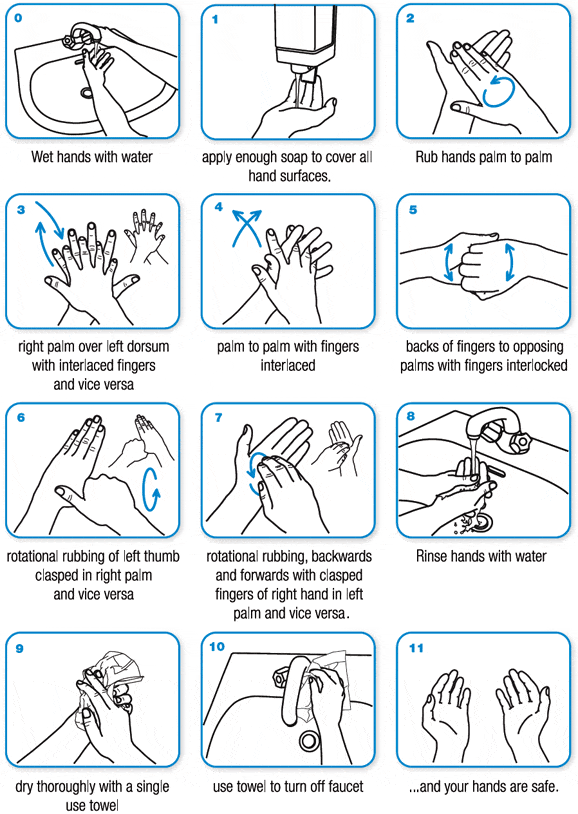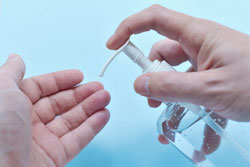With cold and flu season starting, you can be sure that you’ll be given this advice: The best defense is washing your hands.
That’s because you typically get infected with viruses by touching a germy surface. Then, when you touch your face, the virus enters your body through the eyes, nose, mouth, or ears. You likely touch your face a lot more than you think.
A study at the National Institutes of Health found that people touched their face an average of 3.6 times an hour.[1]
That means you face potential infection more than 85 times a day. And that’s why public health experts tout hand washing.
The problem is that hand washing is time consuming, inconvenient, and not always possible if you’re not near a sink. So many of us turn to hand sanitizer.
It seems like a great solution. It takes just a few seconds to use. You can bring a bottle of it anywhere.
But a new study finds hand sanitizers are not very effective against the flu virus expected to be most prevalent this season, which is influenza A, also known as H3N2.
Researchers from Kyoto Prefectural University of Medicine in Japan tested the ability of a typical ethanol-based hand sanitizer to kill flu germs in mucus. They found it was difficult for the sanitizer to cut through mucus and reach the virus.[2]
They then collected sputum from flu patients and dabbed it on volunteers’ hands. Sputum is the mixture of saliva and mucus that you cough up, sometimes just in microscopic amounts.
After the volunteers rubbed their hands for two minutes with hand sanitizer, the virus was still alive. It took four minutes of rubbing before the virus died, far longer than people typically take.
So what works if hand sanitizer doesn’t?
The scientists found that old fashioned hand washing with soap kills the flu virus in just 30 seconds. It may not be as convenient as hand sanitizer, but it works.
You should wash your hands after touching surfaces that contact other people. This includes things like door knobs, shopping carts, ATM machine buttons, and gas pump handles.
The Best Way to Wash Your Hands
A study published in the journal Infection Control & Hospital Epidemiology found what researchers believe is the best way to wash hands:[3]

One more thing…
Don’t use soaps labeled antibacterial. They often contain triclosan. It’s a chemical endocrine disruptor that is linked to cancer. And it doesn’t clean your hands any more effectively than plain soap.[4]
Editor’s Note: If you’re concerned about getting sick, you need the Superbug Exterminator Protocol. It’s a simple plan that keeps you safe from the dangerous germs that are circulating. You’ll find it only in our monthly journal Independent Healing, your best source for the latest science-based health solutions. Go HERE to subscribe.
Related Articles
Wash Your Hands Right After Touching These 7 Things
Why You Should Never Use Restroom Hand Dryers
The Germiest
Place in the Airport Will Surprise You
Like this Article? Forward this article here or Share on Facebook.
[1]https://www.livescience.com/25086-stop-touching-yourself-flu-researchers-say.html
[2]https://www.studyfinds.org/flu-season-alert-hand-sanitizer-not-very-effective-against-virus-strain/
[3]https://www.ncbi.nlm.nih.gov/pubmed/30854338
[4]https://www.ncbi.nlm.nih.gov/pubmed/30322055

